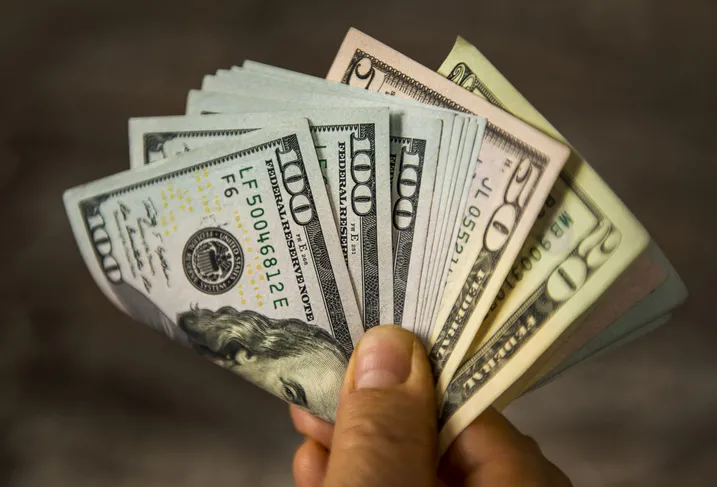There’s something unspoken but deeply understood in every power lunch and startup pitch deck: money isn’t just currency—it’s mindset. The beliefs we hold about wealth, earning, and value shape our habits, our risks, and ultimately, our bank balances. What the rich understand about money isn’t a secret handshake or an inherited trust fund (though those help), it’s often a radically different way of thinking. If you’ve ever wondered why some people always seem to multiply their income while others feel stuck, these 15 contrasting money beliefs might just shift your entire strategy.
1. Money Is A Tool, Not A Goal

Wealthy people don’t romanticize money—they use it. It’s not about stacking cash to feel safe; it’s about leveraging it to create, build, and expand options. Money is a means to an end: freedom, access, and the ability to say “no.” Poor mindsets often center on saving for security, without asking what that money is meant to do.
According to Shortform, rich people have a fundamentally different mindset about money: they see it as a tool for creating solutions and meeting their goals, not as an end in itself. They move money intentionally, focusing on positive actions and long-term returns, while poor mindsets tend to fixate on security and scarcity.
2. I Create Money Vs. I Earn Money

The rich tend to see income as something they generate, not just receive. They build systems, products, and opportunities that create cash flow even while they sleep. It’s active, not passive—even when the income is passive. There’s a sense of agency, of ownership over the financial narrative.
According to Thomas Frank, this mindset contrasts sharply with the poor mindset, which links money solely to labor. That belief keeps people stuck in jobs, not building futures. It’s exhausting—and totally unsustainable.
3. Spending Is Strategic, Not Shameful

Rich people spend on things that amplify their lives or businesses—education, mentorship, travel, tools. They see spending as a strategy, not a moral failing. Each dollar is a choice with intention behind it, not guilt. The key difference? Value, not cost, drives the decision.
According to Success Resources, a rich mindset invests in assets for long-term wealth and makes money work for them, while a poor mindset focuses on spending for short-term gratification and often attaches shame and anxiety to necessary purchases. The result is emotional spending or total deprivation—neither of which builds wealth.
4. Risk Is Calculated, Not Avoided

Wealthy people get that risk is part of the game. But it’s not blind or brash—it’s researched, informed, and intentional. They’re willing to lose short-term for long-term wins. They trust themselves to pivot if needed.
According to BeingGuru, individuals with a rich mindset embrace risk-taking as an essential part of success, recognizing that calculated risks—especially in investments or business ventures—can yield substantial rewards. In contrast, a poor mindset tends to be risk-averse, driven by fear of failure or loss, and prefers to maintain the status quo rather than pursue new opportunities.
5. Time Is More Valuable Than Money provided by Shutterstock
provided by Shutterstock
Rich mindsets constantly ask: “Is this the best use of my time?” They outsource what they can, automate what they must, and focus on high-leverage activities. It’s not about laziness—it’s about understanding return on investment. You can always make more money, but time? That’s nonrefundable.
According to Big Think, people who value time over money enjoy greater well-being, stronger relationships, and more satisfaction in life. The wealthy recognize that time is finite and irreplaceable, so they make intentional choices to maximize its value. In contrast, poor money beliefs treat time like it’s endless and money like it’s gold dust. People trade hours for pennies, not realizing the real cost. They handle everything themselves to “save money”—while bleeding time they’ll never get back. It’s a hidden trap that feels like hustle but leads to burnout.
6. Debt Can Be A Tool

To the rich, debt isn’t always a red flag—it’s a resource. Think mortgages, business loans, or credit leveraged to build assets. Used well, debt accelerates growth. It’s not the enemy; it’s a means to scale faster.
Poor money beliefs see all debt as dangerous. It’s tied to shame, bad decisions, or desperation. That belief keeps people from using credit strategically. And ironically, it can lead to more damaging debt—the kind that doesn’t generate income.
7. Networks Build Net Worth

Wealthy people know relationships are assets. They invest in who they know as much as what they know. Opportunities flow through people, not just platforms. A rich mindset doesn’t network to *get*—it networks to grow.
Poor mindsets often see networking as fake or transactional. But that’s a misunderstanding of what real connection looks like. Staying isolated limits your insight, your reach, and your potential. Money moves at the speed of trust—and trust is built in community.
8. Learning Is A Forever Investment

Rich people don’t stop learning. Courses, coaching, books, podcasts—they’re constantly upgrading their mind. Growth is non-negotiable, because they know wealth grows with them. They treat education like compound interest.
Poor money beliefs say, “I can’t afford to learn that.” Or worse, “I already know enough.” It’s a static mindset that keeps people recycling the same problems. When you stop learning, your money does too.
9. Income Streams Should Multiply

A rich mindset is rarely reliant on one income stream. Even a high-paying job isn’t enough—they want multiple sources of income. Real estate, investments, side businesses—each stream adds a layer of security. And more importantly, freedom.
Poor mindsets focus on protecting the one stream they have. It feels safer, but it’s actually riskier. Lose one job, and the whole system collapses. True security comes from diversity, not dependence.
10. Money Talks Are Normal, Not Taboo

People with wealth don’t whisper about money—they talk about it openly. They ask questions, compare strategies, and learn from each other. It’s not weird to ask how much something costs or how someone structured a deal.
Silence keeps people stuck; conversations unlock codes.
In contrast, poor money beliefs make money feel shameful. Talking about it feels like bragging—or begging. So people struggle quietly, repeating mistakes. Normalizing money talk is a power move.
11. Future You Deserves Respect

The rich think long-term. They save, invest, and build with Future Them in mind. It’s not just about comfort—it’s about options. Every dollar today is a vote for the life you want tomorrow.
Poor mindsets live in constant reaction mode. Bills, emergencies, instant gratification—there’s no breathing room. But without a long view, you’re always catching up. Respecting your future is a radical act of self-worth.
12. Budgeting Is Freedom, Not Restriction

Rich mindsets use budgets like a GPS—not a prison. It’s how they steer their money toward the life they want. Knowing where your money goes is empowering, not limiting. It’s how you take control.
Poor mindsets see budgeting as painful or impossible. It’s all “I’m bad with money” energy. But budgeting isn’t about perfection—it’s about awareness. And you can’t change what you won’t look at.
13. Wealth Isn’t Flashy

Most wealthy people don’t look like a music video. They drive regular cars, wear understated clothes, and don’t flex unless it’s fun. Their money is in assets, not image. Because real wealth whispers.
Poor mindsets chase the appearance of wealth. Designer bags on credit, luxury trips with no savings. It’s all aesthetic, no foundation. But looking rich and being rich are very different games.
14. Ownership Beats Consumption

Rich mindsets prioritize ownership—of ideas, businesses, stocks, real estate. They don’t just buy; they build and hold. Every purchase is weighed against: could I *own* this instead? It’s a different kind of instinct.
Poor mindsets are wired to consume. Spend now, figure it out later. There’s no thought of investing—only immediate satisfaction. But ownership creates leverage; consumption creates debt.
15. Your Money Story Can Change

Here’s the real flex: rich people know mindset is malleable. They rewrite their beliefs, even if they didn’t grow up with wealth. Therapy, coaching, journaling, deep self-work—it all matters. Because the story you tell yourself about money becomes the life you live.
Poor mindsets often feel fixed. “I’ve always been bad with money,” “People like me don’t get rich,” etc. But those stories are optional, not facts. Changing your beliefs is step one to changing your bank balance.
This article is for informational purposes only and should not be construed as financial advice. Consult a financial professional before making investment or other financial decisions. The author and publisher make no warranties of any kind.








